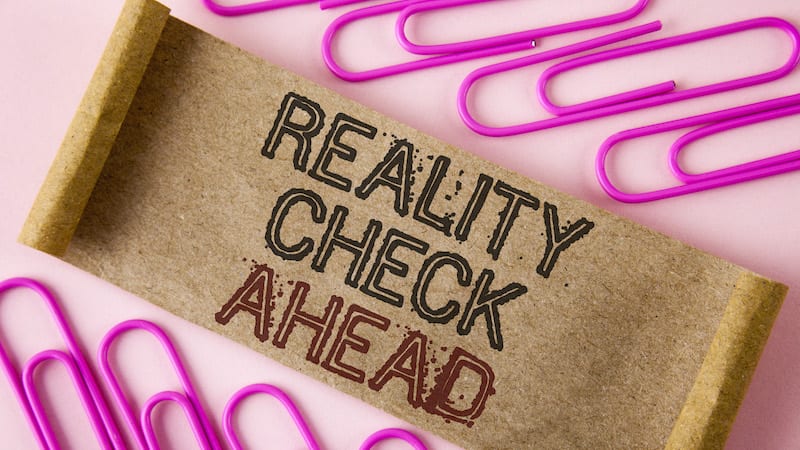Learning to be a teacher and actually being a teacher are two very different things. After all, there are so many things about teaching you just can’t learn until you get your own classroom. However, if we can be aware of some of the areas in which new teachers feel deficient, maybe our teacher training programs, as well as teacher mentors and administrators, can offer extra support to get our new teachers off to a great start.
We asked teachers on our WeAreTeachers—First Years! Facebook group what they wish they had learned in their teacher training programs, and their answers revealed these common themes.
1. Time management and personal organization skills
It’s a fact that your first year teaching can be overwhelming. Many new teachers wish they had learned more organization skills, for instance how to use planners, how to keep track of schedules and the mountains of paperwork, and how to physically organize their classrooms to run in the most efficient manner. One member of our group reported, “One of the best things my credential program did was have local teachers and principals come and answer questions for us about what it’s like in the ‘real world.’”
For schools that hire brand-new teachers, it would be helpful to pair them with veterans who could offer tricks of the trade and shortcuts. New hires felt they would be better teachers if they could learn more of this practical knowledge ahead of time.
2. Discipline and classroom management
A lack of classroom management skills was the number-one complaint we received from new teachers. Many wished they had gotten more in-depth information on a wider variety of methods for discipline and classroom procedures. They suggested that teacher training programs should spend more time on classroom management in addition to more preservice in-class practice. One teacher suggested it would be easier if each district had a clear, cohesive policy. “I think districts should develop a classroom management plan and train all their new teachers to use it,” she said.
3. How to start the year off right
Teachers know that the first few weeks of school are critical for building classroom community. Taking the time to teach procedures and set up routines pays dividends the whole year. One new teacher shares, “I wish I had had the opportunity to truly see what the first weeks of school are like, how veteran teachers actually plan and get it together before ‘meet the teacher.’” She suggested giving preservice teachers the opportunity to observe this process as part of their student teaching.
4. How to use school technology
Technology skills are critical for teachers to succeed in teaching 21st-century learners. Many new teachers wish they had had more exposure to commonly used programs. Understandably, this is a difficult task to teach because every district uses different technology. But being familiar with a variety of samples could raise new teachers’ comfort level and confidence.
5. How to use data
New grads understand that data is an important element in today’s classroom but often graduate with a shallow understanding of why it is so important. They feel they would be better prepared with more training on when and how to efficiently collect data and, most importantly, how to use it to inform instruction.
6. How to communicate with parents
Building successful relationships with families is often tricky for new teachers, especially those in their early 20s. Many wish they had learned strategies for navigating communications in a professional manner, specifically building friendly relationships while at the same time establishing boundaries. In addition, many are less-than confident when it comes to parent-teacher conferences and wish they had learned to use specific formats and forms.
7. Lesson planning
Many new teachers wish they had been coached more heavily on creating meaningful lessons. Some of the topics mentioned include concept maps, backward planning, differentiated instruction, pacing, and scope and sequence. One third year teacher summed it up succinctly, stressing the importance of learning “the details of lesson planning—matching objectives to activities, assessing prior knowledge, and asking questions that go beyond surface-level learning.”
8. How to manage assessment
Along with creating meaningful lessons, many new teachers had questions about knowing what to assess and how. One teacher, for instance, asked, “What do you grade and how do you determine how many points each thing is worth?” Teaching the difference between summative and formative assessment is essential for teacher candidates. So is providing and practicing with different examples and different assessment methods.
9. Licensure and the business of teaching
After successfully completing their teacher training, many candidates feel unsure about next steps. They mention confusion around what tests to take for licensure, how to go about getting a license and, once licensed, how to stay current. One new teacher wrote, “I need help figuring out how many PD hours I need, where to get them, and how to move from one level to the next.” In addition, many new teachers had questions about contracts, unions, retirement plans, and more.
10. Working with other professionals
Many new teachers are unsure about how to make the most of their relationships with OTs, PTs, counselors, literacy instructors, paraprofessionals, and other support staff. They wish they had had more guidance about how to work together to do what’s best for kids.
11. Special education and ELL
As pull-out services fall out of favor in many districts, classroom teachers are responsible for meeting the needs of all of the learners in their care. Many of the new teachers in our Facebook group wish they had had more training in meeting the specialized needs of their special ed and ELL students.
What do you wish you had learned in your teacher training program? Come share in our WeAreTeachers—First Years! group.
Also, check out 10 Questions Every Rookie Teacher Wants Answered.
